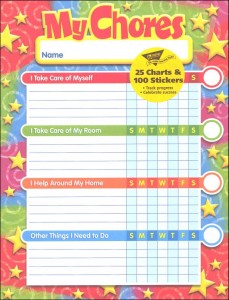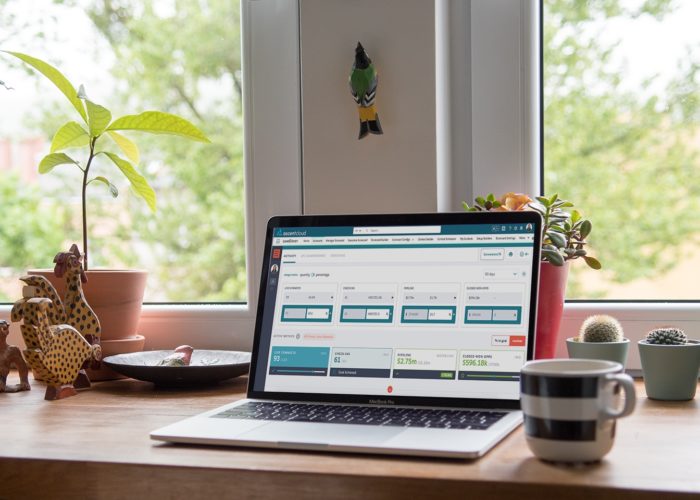 The Gamification topic is seemingly divided. Some love the idea of making common tasks more fun, and some think that games are for children only. Here are a few ways gamification has crept into our daily lives without most of us knowing it:
The Gamification topic is seemingly divided. Some love the idea of making common tasks more fun, and some think that games are for children only. Here are a few ways gamification has crept into our daily lives without most of us knowing it:
1. Household Chores
Remember when your mother or teacher would hand you a gold sticker to put on the chart because you remembered to wash your hands before eating? Gamified. With new apps like ChoreMonster, you can take this a step further, setting your child’s goals and leaving it to game mechanics to encourage them to clean their room and have fun while doing it.
2. Financial Goals
Many coupon apps have popped up recently asking you to invite a friend, or watch a 10 second product video for a point redeemable for prizes. Gam-i-fied. Banks and financial institutions offer goal tracking services that allow you to set personal goals and achieve financial milestones. If you use Mint.com’s goal tracker, for example, you’ve been gamified.
3. Social Media
Use Klout to increase your social media profile? If just one more person retweets your post, you’ll hit your “Klout Score” goal? Gamified. Play Candy Crush or Farmville on Facebook with bonuses for inviting your friends? Gamified. We could even argue that with the invention of the “Like” button on Facebook, brands found a way to incentivize our attention long before gamification was popular. Looking for an upcoming concert or festival this weekend? You’ve been gamified. Loudie is an app that offers users promotions and opportunities to earn points to go to upcoming events, which includes free passes!
4. Education
Using computer games to encourage a middle-schooler to finish their algebra homework = Gamified. Khan Academy also uses gamification to encourage learning for children. With “skill growth trees,” they can unlock and “earn” new classes based on completing other ones. Several other sites have designed effective ways to add more fun into different learning situations, like: learning a new language or how to use Microsoft Office. If you are a teacher trying to improve behaviors and engagement in the classroom, try ClassDojo. It is a tool that allows teachers to award feedback points in real-time around classroom behaviors.
5. Healthy Living
Got Fitbit? Then you know the emails, “Great Job! You hit your goal. Most people don’t [walk, run, swim, etc] that much. Think you can do 1 mile more?” Of course, I can! Say it with me: “Gamified.” There are a plethora of companies, like BuddyUp, that have started to gamify workout plans by awarding badges to users to complete their goals and continue to stay on track. There are a new website to encourage healthly lifestyles for kids called Joinforme.com that tracks exercise, activities and healthy eating and LeapFrog’s new LeapBand wearable band for kids helps jumpstart healthy living, too.
6. Being a Good Human
Send flowers to your mom for Mother’s Day using Teleflora? Even that was gamified! Teleflora recently gamified their entire operation. By giving consumers points for leaving reviews and feedback, and bonus points for Facebook posts and answering Q&A questions, Teleflora increased their conversion rates by 92% and gave consumers rebates, too. Crowdwise uses gamification for Charity. Through customizing your user profile, and playing a few games, you can raise money for your favorite non-profits and causes.
Sneaky, right? These common use cases suggest that game mechanics are a quick and easy motivator to achieve goals. If your team can do these things on their down time, think of the impact gamification could make on their work time! (Or you can see examples of what it did for other work teams here.)




